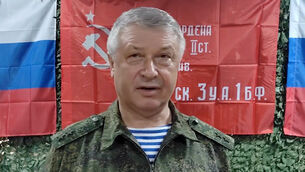Confusion over British troops role
US Secretary of State Colin Powell today sparked confusion over the role British forces might play in a peacekeeping mission in Afghanistan.
Speaking in Paris, Mr Powell suggested the British government had volunteered to take the ‘‘leadership role’’ in a peacekeeping force.














